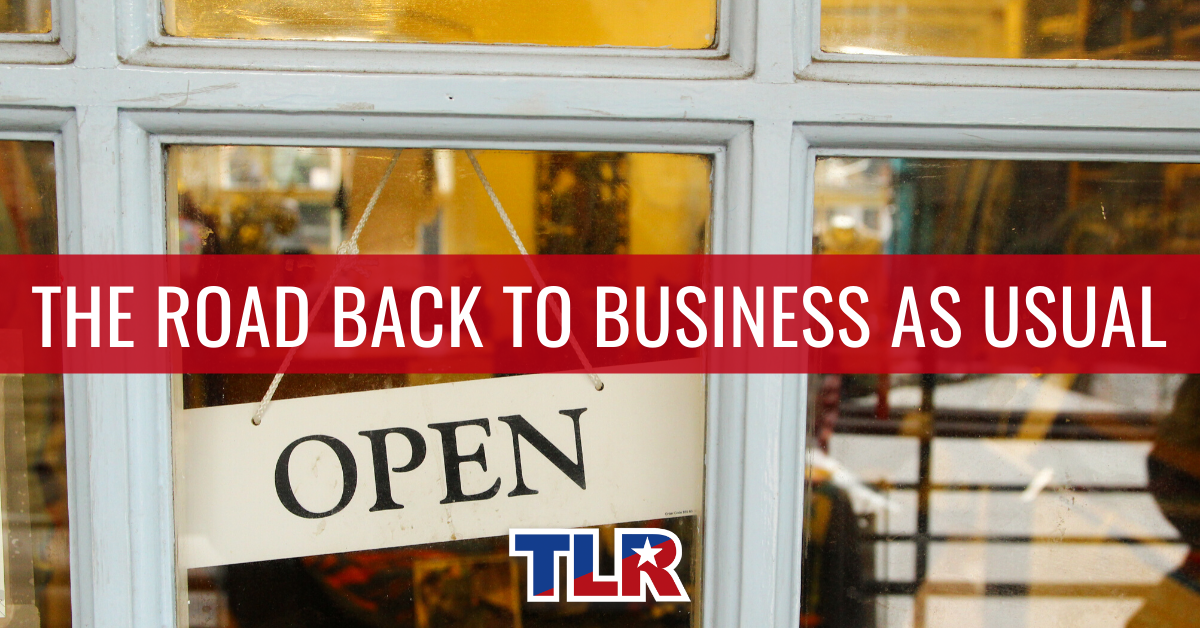
“My torts professor taught us that uncertainty about the standard of care creates what he calls a ‘cliff problem’… When we know there’s a liability cliff—some line that will be catastrophic to step across—but we don’t know exactly where the edge of the cliff is, we will avoid the ground near the cliff altogether.”
That testimony, provided by Texas Christian University General Counsel Leroy Tyner to the U.S. Senate Judiciary Committee, puts into clear focus the tremendously difficult decisions businesses across our state and nation are facing today.
While everyone looks forward to the day when we can resume business as usual, we all understand that given the nature of the COVID-19 pandemic, its side effects will linger for many years to come. But we also know that people must work. Businesses must operate. And they are increasingly being given the greenlight to do so by state and local governments.
TLR has been working with state and federal leaders to determine if there is a way to give businesses some reassurance that they are not blindly approaching a liability cliff. At the federal level, Senate Majority Leader Mitch McConnell has designated Senator John Cornyn as the lead on liability issues. McConnell has stated that the next relief package must include liability protections for those who act in good faith and follow recommended health and safety protocols.
TLR was pleased to host a webinar last week with Senator Cornyn and business leaders from a variety of industries across the state—including hospitality, restaurant, retail, medical and real estate—to discuss the liability issues they have faced during the pandemic and those they expect to face as the state begins reopening. The senator and his judiciary committee staff have made themselves available to interested parties who want to share their concerns and suggestions as the legislation is being shaped.
No one is advocating for blanket liability protections or for protections for those who act recklessly or are grossly negligent. But the uncertainty concerning future liability for those who follow government health and safety standards and reopen—or have been operating the entire time as essential services—is a serious impediment to opening our society and restoring our economy to full vigor.
In the absence of any statutory shields, some companies, like Walt Disney World, have begun requiring patrons to sign a waiver stating they understand the inherent risk of contracting COVID-19 while visiting their parks during the pandemic, and will not sue if sickened.
As we begin to take steps toward reopening, one thing is for sure—we are treading new ground as a state and a nation in the wake of the COVID-19 pandemic. TLR will continue to urge passage of common-sense liability protections that will help reignite our state’s economy and get Texans back to work safely.
